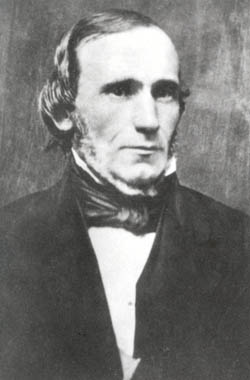Benjamin Harrison
| Benjamin Harrison, head and shoulders bw photo, 1896.jpg | |
Benjamin Harrison (August 20, 1833 – March 13, 1901) was an American politician and lawyer who served as the 23rd President of the United States from 1889 to 1893. He was a grandson of the ninth president, William Henry Harrison, creating the only grandfather-grandson duo to have held the office.
Early Life and Education[edit | edit source]
Harrison was born on August 20, 1833, in North Bend, Ohio, to John Scott Harrison and Elizabeth Ramsey Irwin. He was the second of eight children. Harrison attended Farmer's College near Cincinnati before transferring to Miami University in Oxford, Ohio, where he graduated in 1852. He studied law in Cincinnati and was admitted to the bar in 1854.
Early Career[edit | edit source]
Harrison moved to Indianapolis, Indiana, where he established a successful law practice. He became involved in local politics and was elected as the city attorney of Indianapolis in 1857. During the American Civil War, Harrison served in the Union Army, rising to the rank of Brigadier General.
Political Career[edit | edit source]
After the war, Harrison resumed his law practice and became active in the Republican Party. He was elected to the United States Senate from Indiana, serving from 1881 to 1887. As a senator, he supported high tariffs and veterans' benefits.
Presidency (1889-1893)[edit | edit source]
Harrison won the presidential election of 1888, defeating the incumbent president, Grover Cleveland. His administration is noted for its economic legislation, including the McKinley Tariff and the Sherman Antitrust Act. Harrison also supported the Dependent and Disability Pension Act, which provided pensions for Civil War veterans.
Domestic Policy[edit | edit source]
Harrison's presidency saw the passage of significant economic legislation. The McKinley Tariff raised duties on imports to protect domestic industries. The Sherman Antitrust Act was the first federal act that outlawed monopolistic business practices. Harrison also signed the Dependent and Disability Pension Act, which provided pensions for Civil War veterans and their families.
Foreign Policy[edit | edit source]
Harrison's foreign policy was marked by an expansion of American influence abroad. He supported the Pan-American Conference and sought to build a stronger navy. His administration negotiated reciprocal trade agreements with several countries.
Later Life and Death[edit | edit source]
After losing the 1892 election to Grover Cleveland, Harrison returned to his law practice in Indianapolis. He remained active in public affairs and wrote several books. Harrison died on March 13, 1901, in Indianapolis.
Legacy[edit | edit source]
Harrison's presidency is often remembered for its legislative accomplishments and his efforts to modernize the American navy. He is also noted for his advocacy of civil rights for African Americans, although his efforts were largely unsuccessful due to opposition in Congress.
Personal Life[edit | edit source]
Harrison married Caroline Lavinia Scott in 1853, and they had two children, Russell Benjamin Harrison and Mary Scott Harrison. After Caroline's death in 1892, Harrison married Mary Scott Lord Dimmick in 1896.
See Also[edit | edit source]
- List of presidents of the United States
- History of the United States (1865–1918)
- Republican Party (United States)
References[edit | edit source]
External Links[edit | edit source]
Template:Presidents of the United States
Navigation: Wellness - Encyclopedia - Health topics - Disease Index - Drugs - World Directory - Gray's Anatomy - Keto diet - Recipes
Search WikiMD
Ad.Tired of being Overweight? Try W8MD's physician weight loss program.
Semaglutide (Ozempic / Wegovy and Tirzepatide (Mounjaro / Zepbound) available.
Advertise on WikiMD
WikiMD is not a substitute for professional medical advice. See full disclaimer.
Credits:Most images are courtesy of Wikimedia commons, and templates Wikipedia, licensed under CC BY SA or similar.- Pages with script errors
- Use mdy dates from March 2023
- Medicine stubs
- Encyclopedia
- 1833 births
- 1901 deaths
- Presidents of the United States
- Republican Party (United States) politicians
- People from North Bend, Ohio
- Miami University alumni
- Union Army generals
- American Civil War officers
- United States senators from Indiana
- 19th-century American politicians
Contributors: Prab R. Tumpati, MD





